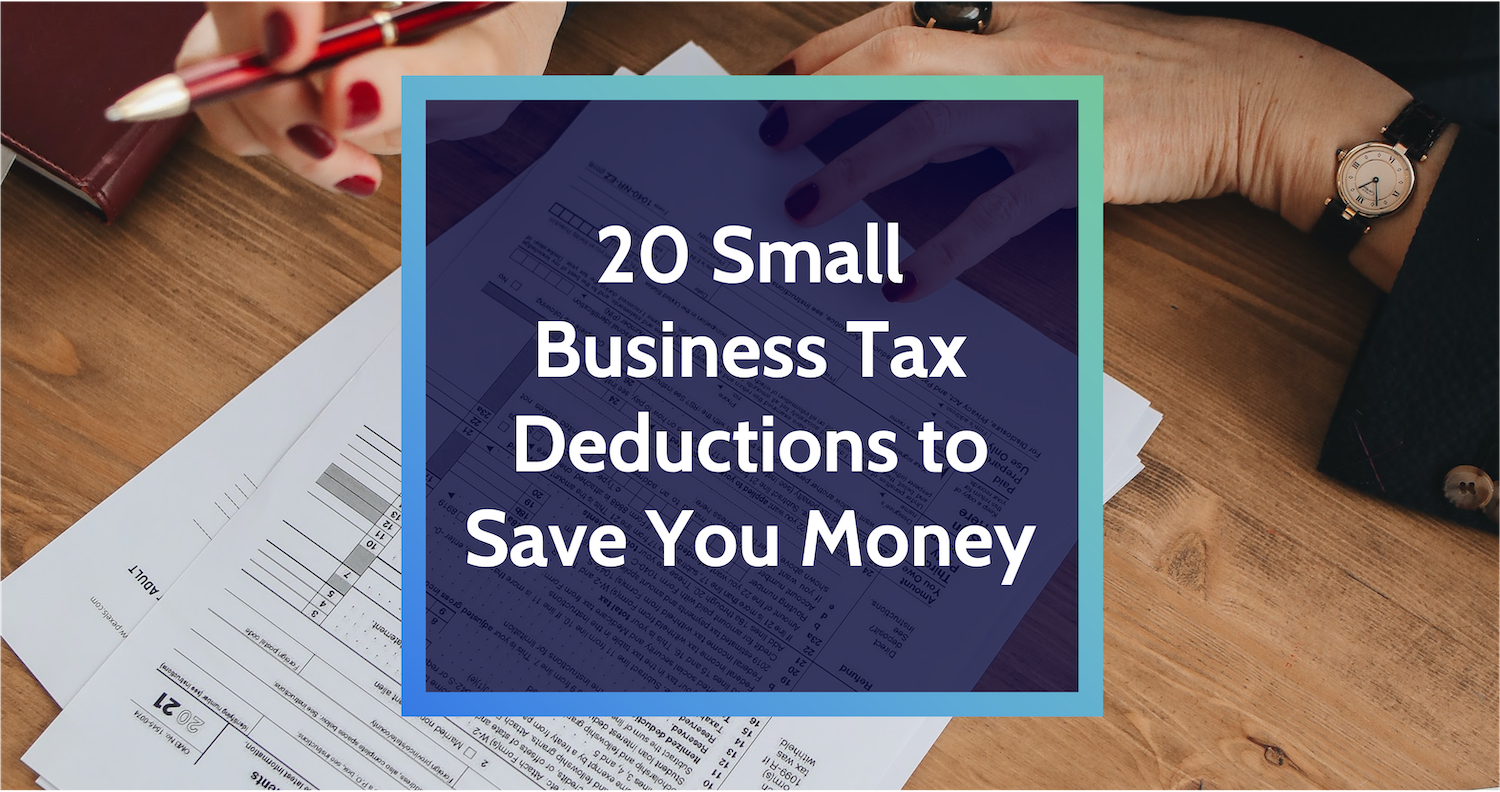20 Small Business Tax Deductions to Save You Money
Each tax season, knowing how to maximize your tax deductions—and minimize your taxable income—is a great way to help your small business thrive. But waiting until tax season to comb through your receipts and categorize your expenses can be a huge headache. The best way to make tax season a breeze is to have great understanding of what small business tax deductions are available to you.
The Internal Revenue Service (IRS) provides detailed information that can help answer any question you may have. However, their website can be cumbersome to navigate. Of course, we always recommend you consult a qualified CPA or tax consultant if you need support filing your taxes.
As for bookkeeping, QuickBooks is a fantastic option to streamline tracking your expenses year-round so that come tax time, you aren’t stressed with stacks of uncategorized receipts.
Top Small Business Tax Deductions
To help you get started, below is a list of small business tax deductions you may be able to write-off when file your taxes this year. Keep in mind, these deductions apply to sole proprietors, partnerships, limited liability companies (LLCs), and corporations. Consult a tax professional if you have questions any of these apply to you and your business.
1. Advertising and Marketing: If you paid for advertising, printed sales collateral, or even hired designers, you can deduct these costs.
2. Mortgage Interest: This standard deduction allows you to deduct the interest you pay on your business loans to purchase, build, or maintain your home (if you own a home and have a mortgage).
3. Business Meals: If you treat clients to a meal, or simply grab a bite while on business travel, you can deduct 50% of these costs from your taxable income as business expenses. Just be sure these meals are business related!
4. Business Travel: Like meals when traveling for business purposes, you can deduct 100% of your travel costs (plane tickets, parking fees, hotels, etc.) incurred from travelling outside of your home state.
5. Home Office Deduction: Do you work from home? You can deduct a portion of your living expenses (rent, mortgage, utilities, and repairs) as home office expenses.
6. Internet Expenses: Like many entrepreneurs, your business likely relies on internet and phone services. You can deduct a portion of these costs, including modems and routers, from your taxable business income.
7. Business Vehicle Expenses: If you use a vehicle to conduct business, you can deduct a portion of these costs when filing your taxes. This may include registration fees, gas, repairs, depreciation, as well as the IRS mileage reimbursement.
8. Business Equipment: It’s likely throughout the year you purchase equipment to conduct business and serve your customers. Keep your receipts and you may be able to deduct 100% of these costs.
9. Office Supplies: Don’t you love having to buy paper, ink, and pens? Maybe not, but you can be sure to claim them as office expense deductions.
10. Legal and Professional Fees: Lawyers and accountants can be expensive, but they are often critical to keep your business running smoothly. Luckily, you can deduct their fees from your taxable income. Just make sure these services are only for your business and not your personal life.
11. Real Estate Taxes: If you own a retail storefront, a warehouse, or other type of business property, you can deduct the real estate taxes you pay as a business expense.
12. Education and Training: Did you or your employees attend an industry conference, buy books, or pay for classes to gain a credential in your field? You can deduct these costs if they improved your skills and ability to conduct your business.
13. Health Insurance Premiums: If you or your employees are insured through your business, you may be able to deduct some of these health insurance premiums from your business income.
14. Entertainment Expenses: Just like business meals, if you entertain your clients or customers to increase business, you can deduct 50% of the cost of these meals from your income.
15. Charitable Contributions: Donating to charities can be an important way to give back to the community and gain visibility for your business. Deductions for this category include cash donations and the values of any goods or services you donate.
16. Retirement Contributions: If you offer or receive a 401K from your business, you can deduct the contributions you make from your business income.
17. Banking and Credit Card Fees: If your bank or credit card company charges fees, including regular annual/monthly fees or transaction fees from your customers, these fees can be deducted from your income.
18. Cleaning: Every time you pay a cleaner or janitorial service provider to clean your business property, you can deduct these expenses when filing your taxes. If you work from home and pay for cleaning, you can deduct a portion of these expenses as part of the home office deduction.
19. Utilities: If you own a business property (other than your home), keep track of your costs for electric, sewer, and water utilities. These are all tax-deductible.
20. Bad Debts: At some point or another, you may pay a customer or vendor on credit and the debt becomes uncollectible. Instead of taking the loss completely, you may be able to write it off as a loss and claim it as a bad debt expense.
Consult a Tax Professional
With tax deductions like these, you can greatly reduce your tax bill when it comes time to file each year. Be sure to consult your tax professional on these deductions and more that might be available to you.

